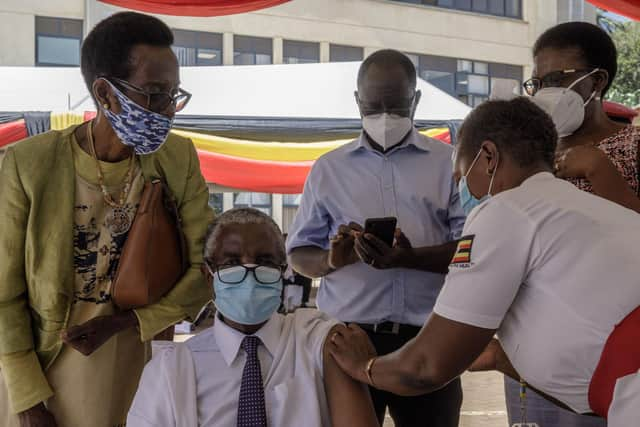Overseas aid budget cuts means essential research on Covid and other diseases is being stopped – Professor Eleanor Riley
The Medical Research Council (MRC) unit in The Gambia has been conducting research on infectious diseases since 1947.
Their research to control mosquitoes, improve diagnosis and ensure ready access to effective drugs has helped to reduce annual deaths from malaria in this small West African country to a tiny fraction of those seen 75 years ago, and contributed to reducing global malaria deaths by over 70 per cent since the start of this century.
Advertisement
Hide AdAdvertisement
Hide AdThe unit’s researchers have trialled new vaccines for hepatitis, pneumonia and meningitis that are saving hundreds of thousands of lives globally every year and continue to evaluate improved vaccines for polio, tuberculosis and diarrhoeal diseases.
Just as here in the UK, scientists in The Gambia, at the UK MRC’s unit in Uganda, and at research institutes across the African continent, have been at the frontline of the Covid-19 pandemic.
Working with local health ministries, they have established laboratory-testing capacity and are now monitoring the spread of the virus, assessing risk factors for hospitalisation and death in their particular populations, sequencing viral genomes, detecting and monitoring novel variants, rolling out and evaluating vaccination programmes.
This work is essential not just for controlling the disease locally but also for informing our overall understanding of how the virus evolves and spreads, for trying to predict when and where the current pandemic will end, and for preventing the next one.


Much of this work has been funded by the UK government through Official Development Assistance – our overseas aid budget. Despite a legally embedded commitment to spend at least 0.7 per cent of gross national income on overseas aid, this year we will spend only 0.5 per cent (of a significantly reduced total).
The resulting cuts have not fallen equally across the aid budget. Research funding has taken a disproportionally large hit. For the MRC, this means a shortfall of £120m for its current commitments, meaning that ongoing projects in The Gambia, Uganda and many other low and middle-income countries in Africa, Asia and Latin America will be stopped, midstream.
And no new collaborative projects – on Covid-19, or on diseases such as tuberculosis, malaria and HIV which collectively killed at least as many people in the last year as coronavirus – can begin.
Apart from the enormous waste of time, money and effort that this represents, the damage to the UK’s reputation as a trusted research partner is incalculable.
Advertisement
Hide AdAdvertisement
Hide AdCovid-19 started outside our borders and will remain a threat even when we have brought it under control at home. At a time when it could not be more important to value our global health partnerships, we have walked away.
For a sum less than two days’ running costs for NHS Test and Trace, we have abandoned the very people who can help us out of this mess. If we won’t invest in global health research for their sakes, maybe we should consider doing it for our own?
Eleanor Riley is professor of immunology and infectious diseases at the University of Edinburgh
A message from the Editor:
Thank you for reading this article. We're more reliant on your support than ever as the shift in consumer habits brought about by coronavirus impacts our advertisers.
If you haven't already, please consider supporting our trusted, fact-checked journalism by taking out a digital subscription.
Comments
Want to join the conversation? Please or to comment on this article.